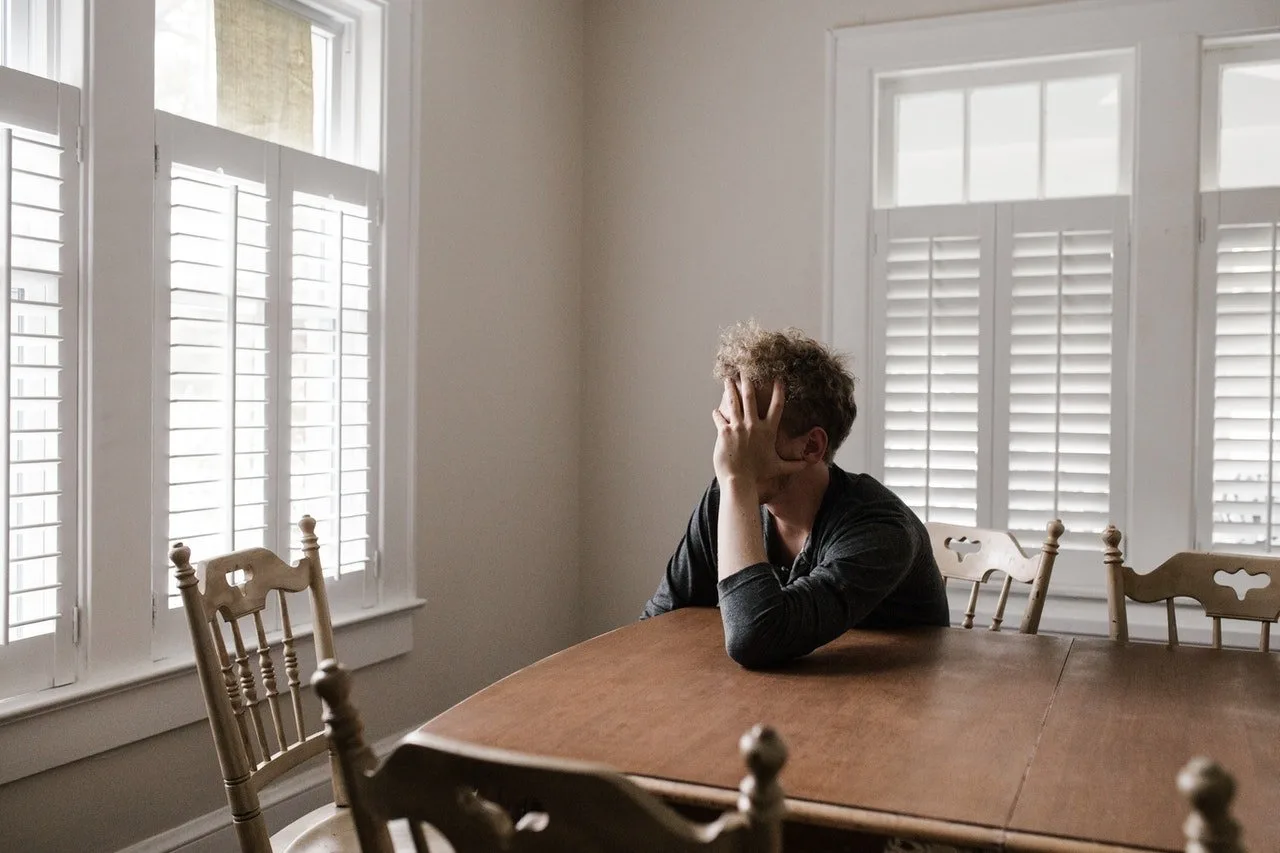Have you been feeling increasingly restless and irritable the past couple of weeks? Do you find it harder to concentrate and are you feeling almost claustrophobic? If so, you may be struck with a case of cabin fever. After months of quarantine and lockdowns of varying degrees all over the world, health experts are referring to a new kind of mental health challenge. That of quarantine fatigue.
According to a study published in the Lancet, being forced to isolate can result in symptoms of traumatic stress, confusion, and anger.
Yes, it’s important that we stay indoors as doing so is helping to flatten the curve, curbing the rate of Covid-19 infection. However, as effective as staying home is, it isn’t exactly easy and it seems that we’re all dealing with it.
So, what exactly is quarantine fatigue?
The novelty of remote working has revealed unexpected difficulties, detracting from people doing their jobs properly and placing many under increased stress.
Quarantine fatigue — exhaustion and waning discipline surrounding the restrictions to daily life needed to prevent the spread of the coronavirus — is entirely understandable. Staying home is stressful, boring, and, for many, financially devastating.
Mental Health and Quarantine Fatigue
In a recent poll by the Kaiser Family Foundation, nearly half of Americans said that the coronavirus pandemic has harmed their mental health. This is most likely true of many other countries if a similar poll were conducted
If you look at how people are speaking on social media platforms you can definitely see people are really fed up.
What are the symptoms?
Symptoms of cabin fever go far beyond feeling bored. Instead, they are emotions that occur as a result of the intense feelings of isolation and being cut off from the rest of the world. While cabin fever can affect each person differently, the most common symptoms include:
- Restlessness
- Decreased motivation
- irritability

Photo by Gustavo Fring from Pexels
- Hopelessness
- difficulty concentrating
- Irregular sleep patterns
- difficulty waking up
- Lethargy
- Distrust of people around you
- Lack of patience
- Persistent sadness or depression
- Food cravings
It should be noted that if any of these feelings persist, despite your best efforts to alleviate them, then you may be struggling with a mental health issue, in which case, you should seek professional help.
Why do we experience quarantine fever?
Behavioral research also suggests that people don’t actually like to sit around and do nothing. In one study, researchers found that when subjects were told to sit in a room and do nothing, they chose to give themselves electric shocks rather than pass the time in silence. Another study in Kenya found that people got greater psychological satisfaction from working for payment than from being idle and receiving the same payment.
We are social beings after all
Humans are social beings, and on top of that, we need to feel in control and productive. While some of us have the opportunity to work from home, the reality is quarantine fatigue isn’t sparked by boredom but by feelings of powerlessness. Our freedom has been taken away and it can be hard to adapt to.
It also doesn’t help if we’re social distancing away from loved ones and friends. This is why it’s important to recognize the symptoms so that one can find ways to cope through and make their quarantine life much easier to endure.
Too much or too little stimulation
There is also an over-stimulation of constant information influx and uncertainty as to what will come of this information, and this is tiring. There is also fatigue associated with a lack of stimulation. Not having a change in the environment is difficult. People are both in an under-stimulated and overstimulated state, and both can result in negative impacts on mood.
Ways to cope
While there’s no standard treatment for cabin fever, my advice would be to find a meaningful coping mechanism that helps to occupy your time and alleviate any negative emotions that you may be feeling. The following activities may help you cope better with your cabin fever.
1. Stick to your routine
For many, before the pandemic, a routine helped us feel in control. Considering the fact that the COVID-19 pandemic has left us feeling powerless, setting up a routine could be exactly what we need to get some of that power back.
Also, a lack of routine can cause us to eat all the wrong things and sleep throughout the day – neither of which is good for our health.
 To combat these problems, try to create a daily routine that makes note of your meal times, your bedtimes, your workout times, and even your work hours and me-time. Get out of bed at the same time that you would usually do so, pre-pandemic, take a shower every day and try not to lounge around the house in your pajamas.
To combat these problems, try to create a daily routine that makes note of your meal times, your bedtimes, your workout times, and even your work hours and me-time. Get out of bed at the same time that you would usually do so, pre-pandemic, take a shower every day and try not to lounge around the house in your pajamas.
2. Spend time outdoors
Yes, we know that you can’t technically venture much into the outdoors with all the lockdown regulations, but we’re not asking you to go all the way to the park. In fact, your backyard will do just fine.
A 2019 study found that spending some time in nature can help improve your mental health by reducing stress levels and boosting feelings of well-being.
If your yard isn’t big enough for you to venture into nature, then you can bring nature to you. Open all your windows to get in some fresh air, invest in some houseplants, and if you can, buy a bird feeder and hang it just outside your window.

3. Maintain your social life
Yes, you can no longer plan impromptu lunch dates at your favorite restaurant, but that doesn’t mean that you should lose out on your social connections. One of the main causes of cabin fever, especially if you’re isolating alone, is the lack of emotional and social support.
With that said, you should do your best to stay in touch with your social network during this period. This can range from regular phone conversations with your parents to being the most active person in group chats.
Also, you’re not the only person isolating so make sure that you give your family and friends room to also share their thoughts and feelings.
4. Carve out some ‘me time’
Just because you’re socially distancing with others, doesn’t mean that you won’t experience bouts of quarantine fatigue. In fact, their presence may even make the symptoms worse. This is why you should carve out some time for yourself.
Find a quiet place to read a book, meditate, or find a separate corner of the house to listen to your favorite podcast.
5. Break a sweat
If you’re feeling irritable and restless, then perhaps what you need is a good workout. Granted you can’t visit the gym or the park, but that doesn’t mean that you can’t get a good workout in the comfort of your own home.
Exercising won’t only help alleviate any anxious feelings you may have, but it can also help to release endorphins – brain chemicals that help to boost your mood.
6. Spring clean
Perhaps you’ll be able to curb your feelings of cabin fever if you make said cabin look like a new space. 
Rearrange your furniture and experimenting with lighting can make your home feel fresher and not quite as suffocating.
7. Embrace discomfort
Part of what makes quarantine fatigue so challenging right now is that we just don’t know how long the lockdown and quarantine regulations are going to last. Due to the uncertainty, it’s important that we get to a place of acceptance as well as address each of the emotions that cabin fever invokes in us. By doing so, it will help us to better deal with our emotions as we go through each day.
It’s also important to remember that the vast majority of people, including all of us who are experiencing difficulties along the way, will ultimately overcome them.
We need to find and share creative solutions to the problems we are facing. We must take care of ourselves and our families in the best way we can, and staying positively connected to one another will remind us we are in this together and help us get through this difficult time.
8. Talk it out
Burying or pushing away negative emotions usually doesn’t do much to improve them.
You might not actively notice these unwanted emotions if you work very hard at keeping them hidden, but they do eventually tend to resurface.
In the meantime, they can trickle out in the form of:
- Mood changes
- Emotional distress
- Physical symptoms like muscle tension or head pain
As quarantine fatigue takes root, experts say it’s worth checking in with yourself and others to deal with this uncertainty in a healthy way
9. Reframing
When you reframe a situation, you look at it from another perspective. This can help you consider the bigger picture instead of getting stuck on little details, as difficult or unpleasant as those details sometimes are.
Say, for example, your relationship has been struggling over the past few months, primarily because you and your partner haven’t had much time to do things together or communicate about problems.
Suddenly, you lose your job and find that you’re now spending plenty of time at home.
Not working isn’t ideal, of course, but for the moment there’s nothing you can do to change that situation. Instead of letting frustration and boredom build up, you can look at the bright side of the situation: You now have plenty of time to reconnect with your partner and strengthen your relationship.
10. Reduce your exposure to blue light
There is an inverse relationship between the wavelength of light rays and the amount of energy they contain. Light rays that have relatively long wavelengths contain less energy, and those with short wavelengths have more energy.
Rays on the red end of the visible light spectrum have longer wavelengths and, therefore, less energy. Rays on the blue end of the spectrum have shorter wavelengths and more energy.
Our electronic support aids, like laptops, iPads, and iPhones emit blue light. So if you are spending all day staring into these screens then you have to be aware that it is probably fiddling with your state of health. We know that blue light interferes with our circadian rhythms, which is why sleep experts advise against taking your screens into the bedroom with you.
During the day you can wear glasses that protect your eyes or even buy a blue light filter to fit onto your devices.
Now more than ever before we have to be mindful of the amount of time we spend on our screens. Even if we think we are chilling watching Netflix on our iPads. Moderate your time, take breaks, and be conscious of how it impacts you. It’s not just a case of our screens being the conduit that dishes out bad news or social media messaging that is stressful. Spending too much on your screen is just not good for your long term health.
When to get help
If you begin to notice that your cabin fever feelings and symptoms are growing stronger by the day, in spite of the various coping mechanisms that you’ve tried out, then you may need to reach out to a mental health professional.
While we may not be able to visit practices, you can still use alternative means when it comes to seeing a mental health expert as telehealth options are currently available.
This post was co-written by Pie Mulumba and Gisèle Wertheim Aymés
You can watch Gisèle Wertheim Aymés speaking to Bronwyn Nielsen on The Nielsen Network speaking about quarantine fatigue.
References
Bratman, G. N., Anderson, C. B., Berman, M. G., Cochran, B., de Vries, S., Flanders, J., Folke, C., Frumkin, H., Gross, J. J., Hartig, T., Kahn, P. H., Jr, Kuo, M., Lawler, J. J., Levin, P. S., Lindahl, T., Meyer-Lindenberg, A., Mitchell, R., Ouyang, Z., Roe, J., Scarlett, L., … Daily, G. C. (2019). Nature and mental health: An ecosystem service perspective. Science advances, 5(7), eaax0903. https://doi.org/10.1126/sciadv.aax0903
Brooks,S., Webster,R.,Smith,L., Woodland,L., et al. (2020)The psychological impact of quarantine and how to reduce it: a rapid review of the evidence, The Lancet, Volume 395, Issue 10227, Pages 912-920, ISSN 0140-6736, https://doi.org/10.1016/S0140-6736(20)30460-8
Read more to help you stay healthier and happier.
Health officials are recommending and in some countries ordering people to wear masks. Two medical specialists explain how to make the most of your health when wearing a mask.



![women [longevity live]](https://longevitylive.com/wp-content/uploads/2020/01/photo-of-women-walking-down-the-street-1116984-100x100.jpg)










